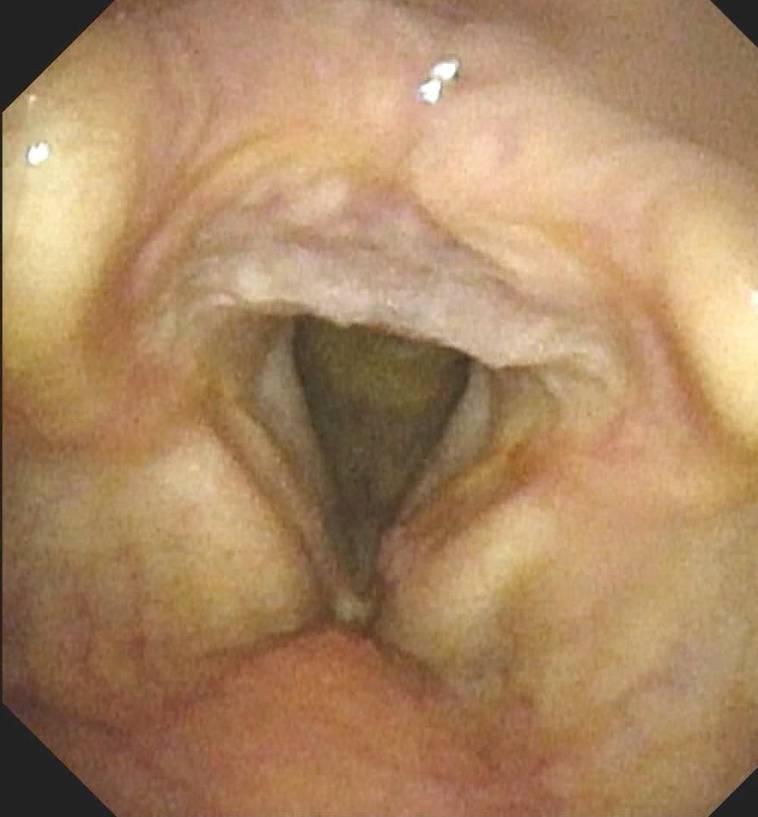Laryngopharyngeal Reflux (LPR) (GERD)

What is reflux?
The human body is wonderfully designed. So, the stomach knows its job is to breakdown the foods we eat into nutrients the body can use. In order to do that, there are some powerful digestive enzymes and acids in the stomach. The stomach and the lower digestive tract can tolerate some degree these digestive substances. However, if these compounds leave the stomach and go back upwards in the swallowing tube or even make it all the way up to the top of the swallowing tube, they cause issues and we call this process acid reflux or reflux for short (since sometimes, it's not acid, but other digestive enzymes.) GERD is gastroesophageal reflux and patients often have belching and heartburn. GERD is often more familiar to people than laryngopharyngeal reflux (LPR).
What are the symptoms of LPR?
There are many symptoms of LPR, but patients don’t always correlate these symptoms to the underlying process of reflux.
- Sensation of a lump or fullness in the throat
- Frequent throat clearing
- Sensation of mucous sticking in the throat and/or post-nasal drip
- Dry cough
- Difficulty swallowing or some pain with swallowing
- Sore throat, particularly in the morning
Who gets LPR?
Actually anyone can have reflux symptoms and have LPR. Often young babies have reflux because their digestive tracts are still new and haven't figured out how to keep things moving downward yet. One thing to understand about LPR is that it is not constant. Some people have reflux every day and some people have episodes from to time. At the Chicago Institute for Voice Care, we will try to develop a treatment plan based on the individual symptoms.
How is LPR diagnosed?
The history of the symptoms listed above, particular if they occur in the morning and get better during the day are quite suggestive of reflux. Currently, the best way to make the exact diagnosis of reflux is to sample secretions in the swallowing tube in a few places for a 24 hour period and check the pH because a low pH mean acid. Because this study takes 24 hours, not everyone opts to have one.
Sometimes, we take the information from the patient about symptoms and give them a trial of medication to see if the medication makes the symptoms better. This is known as empiric therapy and is commonly done (e.g. sometimes we give antibiotics before getting a positive strep test if the throat looks inflamed and infected.) If the symptoms get better with reflux medications, it is likely that reflux was the cause.
How is LPR treated?
As noted above, LPR can have different manifestation in different people. So, the management can be tailored to the patient. Not every patient who has an episode of reflux should be treated as someone who has chronic reflux. However, if the episodes are frequent enough to produce the symptoms listed above, it is likely that we need to intervene to make you feel better and improve your quality of life.
We often begin with lifestyle modifications
- Weight loss
- Frequent small meals
- Chewing food well before swallowing
- Not eating in bed or before laying down
Then, there are convention medications to take to reduce excess
acid:
Over the counter (OTC)
- Tums
- Maalox
- Gaviscon
H2 Blockers block the signal in the stomach that then tells the stomach acid pumps to make acid These are effective at reducing symptoms in many patients
- Zantac (Ranitidine)
- Pepcid (Famotidine)
- Tagamet (Cimetidine)
- Axid (Nitazidine)
PPIs (Proton-Pump Inhibitors) These directly block the acid pump and can be more effective than the H2 blockers in many patients
- Prilosec (Omeprazole)
- Nexium (Esomeprazole)
- Prevacid (Lansoprazole)
- Dexilant (Dexlansoprazole)
- Protonix (Pantoprazole)
- Acifex (Rabeprazole)
What can happen if LPR is not treated?
Untreated LPR can lead to chronic sore throat, chronic hoarseness, and chronic cough. More than these nuisances, there is an association between reflux and cancer both of the swallowing tube and of the throat. In some patients, even after being treated for reflux a Trans-Nasal Esophagoscopy (TNE) is indicated. This can also be done at the Chicago Institute for Voice Care.
What is the prognosis/outlook for LPR?
Fortunately, the prognosis for LPR is quite good. Many patients respond to lifestyle adjustments and do not need to stay on medications. Many have resolution of the hoarseness, coughing and throat clearing that brought them in to the see the doctor.